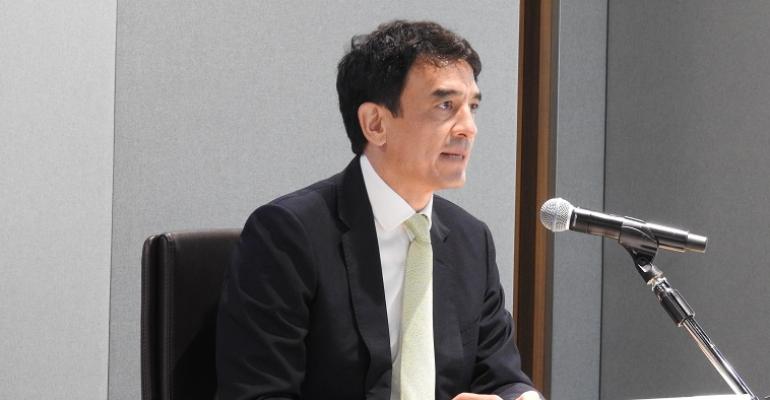The conference in New York brought together a large gathering of the ship finance community- with the overall theme of “Shipping at a crossroads”. The Day 2 session saw keynote speaker Andreas Sohmen-Pao, Executive Chairman of BW Group, discuss “Adapting and investing in a changing world” in an interview with Doug Mavrinac, who heads up Maritime Investment Banking at Jefferies. Mavrinac- in his introduction, had highlighted the industry’s unique environment driven by the pandemic, war in Ukraine and supply chain disruptions- all of which occurred in the past three years, and have mainly been positive for shipping’s earnings.
Sohmen-Pao set the stage for his remarks by saying “I am very positive about the shipping outlook, but very negative about the world outlook,” further explaining that the peaceful trade network built over the past 50 years, based on cheap energy, abundant capital and low cost labour, was now undergoing unprecedented stresses.
“This machine is breaking down…we can’t take it for granted anymore.” Further the analogy he said, “We ran this economic machine and push it over the limit.” He noted that shortages of semiconductor chips could be dealt with, but, alluding to the crises surrounding Ukraine and Russian agricultural exports, “when it comes to food, it gets messy.”
In response to a question from Mavrinac, Sohmen-Pao elaborated on the dichotomy - great for shipping/ bad for the world - by pointing out that: “Shipping is a play on dislocations of demand and supply…if it involves food and energy…it’s even better.” He mentioned that dry bulk is being fueled by the buildout of infrastructure citing recent increases in Chinese cement consumption.
Since the venue for the BW Group interview was, after all, a ship finance conference, the company’s investment philosophy, and its diversification, with multiple shipping businesses as well as investments in emerging technologies, also provided a lively part of the discussion.
From a capital allocation perspective, Sohmen-Pao said that the established shipping businesses, including product specialist BW Hafnia, BW LPG, BW LNG, and also positions in Navigator Gas and crude tanker owner DHT Holdings, provide significant cash flow to fuel companies that are entering a growth phase- reaching out 10 years into the future. “We believe in gaining many small wins,” and (remembering the New York venue) saying “we don’t swing for the fences…we don’t go for home runs”.
Noting the cyclical nature of shipping, timing matters. He stressed that: “We believe in being counter-cyclical,” and cited BW Hafnia’s recent investment in 44 chemical tankers through the acquisition of an Oaktree Capital unit and LR1 tankers, from Scorpio Tankers, earlier this year.
In the subsequent panel on the product tanker markets, BW Hafnia’s CEO, Michael Skov, explained that BW Hafnia raised $100m in a May 2022 private placement of shares in the Norwegian market- as the company’s balance sheet was expanded.
On that same panel, Jacob Meldgaard, the CEO of product tanker stalwart Torm said, “the product tanker market has legs” while Robert Bugbee, the CEO of Scorpio Tankers added that “charterers are reaching out farther into the future to secure cargo” Skov emphasized on the supply side that, “the yards are tied up…you can’t order ships”.
Copyright © 2024. All rights reserved. Seatrade, a trading name of Informa Markets (UK) Limited.
Add Seatrade Maritime News to your Google News feed.  |

